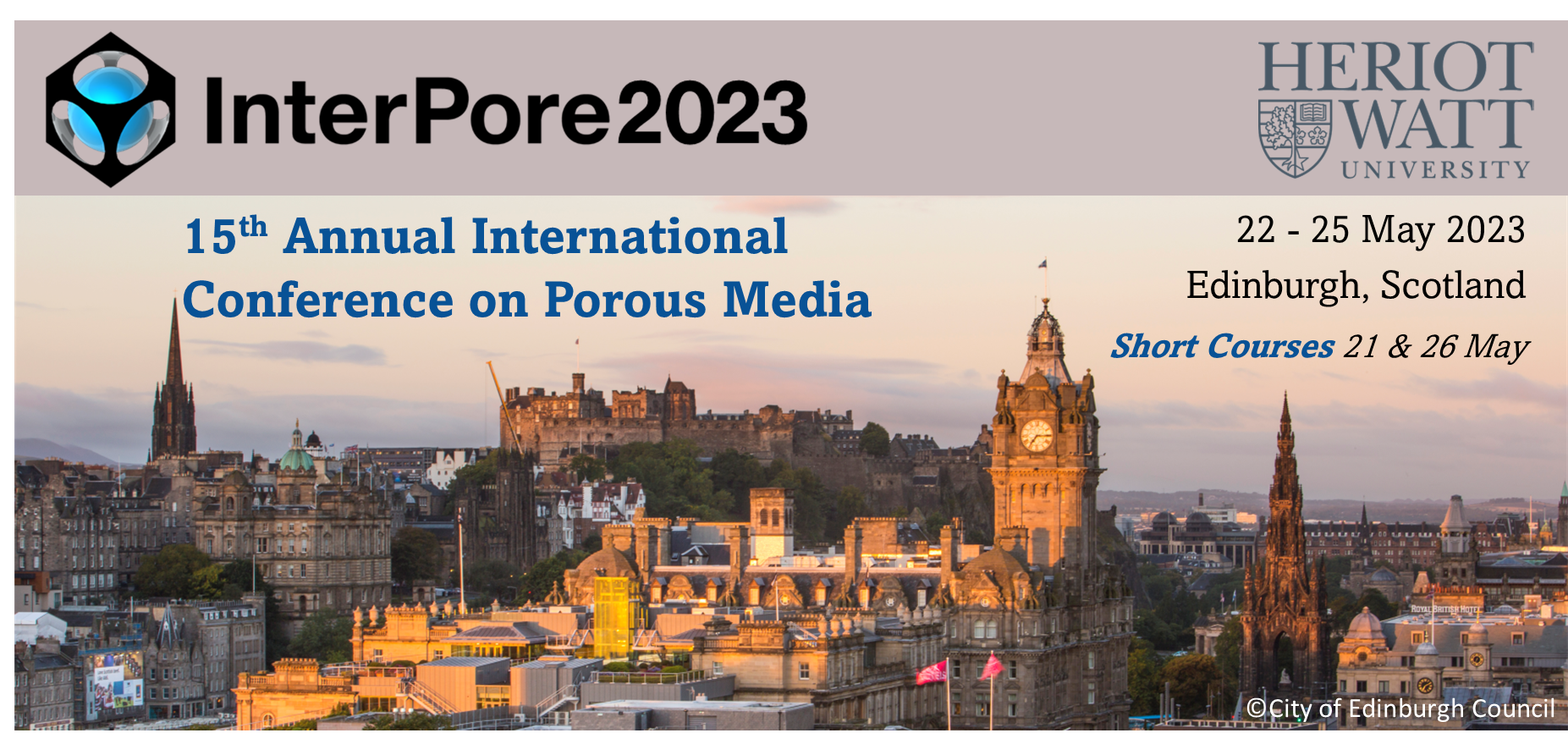Speaker
Description
Data-driven approaches, among them machine learning tools, have garnered increasing interest in porous media research and offer alternatives to traditional numerical methods to improve the predictive modeling based on observation data. Recently, the idea of incorporating prior physical principles within measurements to better rely on experimental data has been successfully immersed into Bayesian inference as a valuable tool for uncertainty assessments.
The emergence of the Bayesian Physics-Informed Neural Networks (BPINNs) paradigm offers the opportunity to query the confidence in the predictions, the uncertainty in the measurements, and the model adequacy by providing posterior distribution of the neural network predictions [1]. In this presentation, we will show how to make BPINNs auto-weighted in order to address multi-objective IA problems, even when relying on shadow quantities.
Classical BPINNs mostly rely on Markov Chain Monte Carlo methods to sample from a weighted multi-objective target distribution, whose weights are related to the scaling of the tasks, the noise magnitude, and ultimately the inherent tasks’ uncertainties. While these parameters are recognized as critical, they are mostly hand-tuned in the applications leading to pathological behaviours or biased estimation, in the sense that one of the objectives will be prevailing in the posterior distribution exploration.
Actually, when dealing with real-world complex systems which involve heterogeneities and multi-scale phenomena in addition to uncertainties in the measurements, the setting of these weights can remain particularly challenging and require considerable energy in tuning. Furthermore, such dynamics also raise scale imbalances that highly disrupt the usual approaches, generating instabilities that make the sampling inoperative.
We focus here on a novel adaptive strategy for unbiased uncertainty quantification in BPINNs, based on an inverse Dirichlet weighting [2] of the target posterior distribution, which remedies to the failure modes previously identified. Our approach provides enhanced convergence, stability, and balanced conditions between the different tasks which ensure an efficient exploration of the Pareto front throughout the sampling procedure. While reducing the bias in the sampling, we show that this strategy is able to automatically adjust the weights, with them the uncertainties, according to the sensitivity of each task.
It then offers an interesting framework to study complex multi-scale dynamics from the Bayesian inference perspective and incorporate uncertainty quantification in multi-objective and stiff inverse problems.
In this direction, we aim to capture and quantify unresolved features arising from noisy X-Ray micro tomography measurements by adding information on the predictive physical-chemical model and then compensate for the lack of knowledge on the rock matrix structure with PDE-based priors, established according to a Darcy-Brinkmann two-scale porosity model [3].
Hence, we apply our auto-weighted methodology to the simultaneous identification of chemical parameters and morphological uncertainties on the porosity field, in a reactive inverse problem at the pore scale.
Altogether with the approach developed in [4] to determine the absolute permeability deviation, we will be able to provide uncertainty quantification on the main macro properties of a porous media sample based on its micro tomography and then perform more relevant direct numerical simulations with respect to the experimental data.
References
[1] L. Yang, X. Meng, and G.E. Karniadakis, B-PINNs: Bayesian physics-informed neural networks for forward and inverse PDE problems with noisy data, Journal of Computational Physics, 425:109913, 2021. doi: 10.1016/j.jcp.2020.109913
[2] S. Maddu, D. Sturm, C. L Müller, and I. F Sbalzarini, Inverse Dirichlet weighting enables reliable training of physics informed neural networks, Machine Learning: Science and Technology, 3(1):015026, 2022. doi:10.1088/2632-2153/ac3712
[3] J.M. Etancelin, P. Moonen, P. Poncet, Improvement of remeshed Lagrangian methods for the simulation of dissolution processes at pore-scale, Advances in Water Resources, 146:103780, 2020. doi: 10.1016/j.advwatres.2020.103780.
[4] S. Perez, P. Moonen, and P. Poncet, On the Deviation of Computed Permeability Induced by Unresolved Morphological Features of the Pore Space, Transport in Porous Media 141:151-184, 2022. doi:10.1007/s11242-021-01713-z
| Participation | In-Person |
|---|---|
| Country | France |
| MDPI Energies Student Poster Award | No, do not submit my presenation for the student posters award. |
| Acceptance of the Terms & Conditions | Click here to agree |







